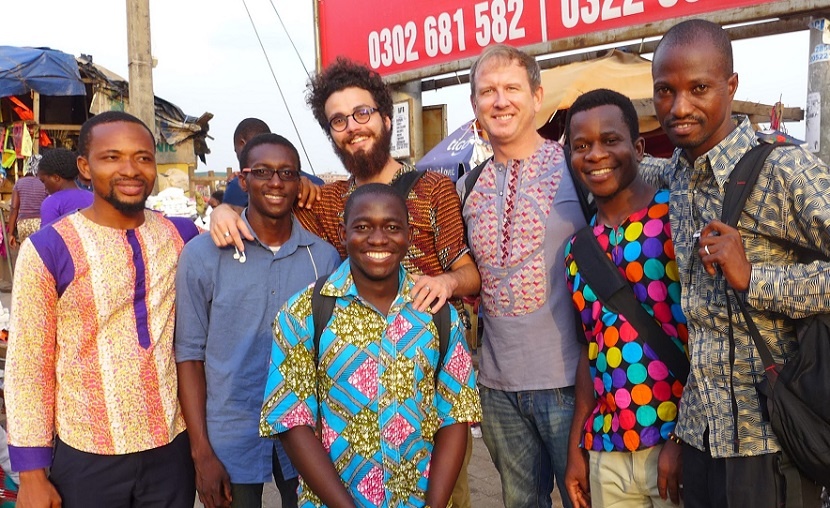Sierra Leone-based startup Mosabi is marrying ed-tech with fintech in order to extend financial services to traders operating in the grey market, and has seen strong adoption of its solution across six markets.
Founded in 2016, Mosabi uses mobile technology to offer what it calls an “MBA for the rising billions” via its business-focused e-learning tool.
Learners go through topics such as entrepreneurship, business skills and financial literacy through compelling, lightweight video lessons, with the platform also using gamified quizzing, surveys and chatbots to drive meaningful engagement. Mosabi’s infrastructure analyses user journeys in real time, prompting them about content based on their targeted profile and preferences.
That’s the ed-tech side taken care of, but Mosabi’s main goal is to help informal sector entrepreneurs increase their income and link them to digital financial services through alternative credit scoring. For that, it has a fintech side.
“We gather engagement analytics and track how users demonstrate understanding of content, demonstrate behavior change – and then our algorithm generates creditworthiness ratings,” said co-founder Chris Czerwonka.
“Our partner financial institutions see insights on our B2B dashboard, including KYC information, e-learning performance insights, loan questionnaire data and our alternative credit score via API – and can then offer financial products to users more confidently and efficiently.”
What sounds good in theory has translated into reality, with Mosabi having over 20,000 users across six countries. Headquartered in Sierra Leone, it has however only just launched operations in the country after initially rolling out services in Ghana, Kenya, Liberia, and Paraguay. It is also now launching in Senegal, with Czerwonka saying it is seeing positive impact.
We see efficiencies – engagement was predictive of up to 25 per cent higher loan repayment rates, and a West African government saved US$4 million after our content helped to onboard public sector employees to digital salary payments. Finally, we see behavior change – 70 per cent of users reported greater earnings or savings or both,” he said.
The lessons available on Mosabi, which in recent months won Société Générale’s pan-African Innovation Competition and was a finalist in the Ecobank Fintech Challenge, are customised to its users’ environments and available in their languages.
“We also use visual and audio cues that can reach low-literacy users. Not only does our training help users build practical skills and increase their income, our lessons and economic incentives are specifically designed to drive behaviour change,” Czerwonka said.
“We believe we are creating unique and tangible value from learning for people excluded from traditional educational pathways, and placing the control back into their hands as we help them understand and improve their creditworthiness.”
Mosabi has mostly bootstrapped operations, with the assistance of some angel investors, grant funding from the likes of the World Bank, UNCDF, and FSD Africa, and prize money from winning various competitions. Czerwonka said it is preparing to raise a seed round later in 2019 as it hatches further expansion plans.
“The same gaps in education, skills, and resources also exist across Latin America and Asia, and we are laying the groundwork for expansion to those regions. Among the countries at the top of those lists are Mexico and India,” he said.
“Within five years we plan to launch in 20 countries across the Global South, and in 10 years we aim to have emerged as the worldwide training platform of choice for lifelong learning aligned with global sustainable development.”
The startup’s core business model is underpinned by its value proposition for banks and financial institutions, who provide its revenues.
“Our goal is not to disrupt them, but to partner with them. We help them create a larger, more informed and better understood customer bases – reducing costs to onboard and upskill them, moving the needle on behavior change, achieving meaningful engagement, and driving higher lifetime customer value,” said Czerwonka.
“We also develop custom content across an array of social impact objectives by working in partnership with NGOs, UN agencies, civil society organizations, and public sector bodies who have inclusive missions to serve our same target audience. This allows us to complement our core entrepreneurship and business skills curriculum with knowledge and skills to contribute to healthier families, safer and cleaner communities, better overall literacy, and expanded digital and vocational skills among the public.”
Long conversion cycles have been Mosabi’s biggest challenge to date, Czerwonka said, but it has made good progress on moving towards its goal of ensuring everyone has the tools and skills to improve their livelihoods, with education and access to financial products are available to all.
“Economic exclusion prevents this vision from becoming a reality,” he said. “We believe passionately that the value we provide our users is transformational and practical. Our training helps users build practical skills and increase incomes, and lessons and economic incentives are specifically designed to drive behaviour change.”


